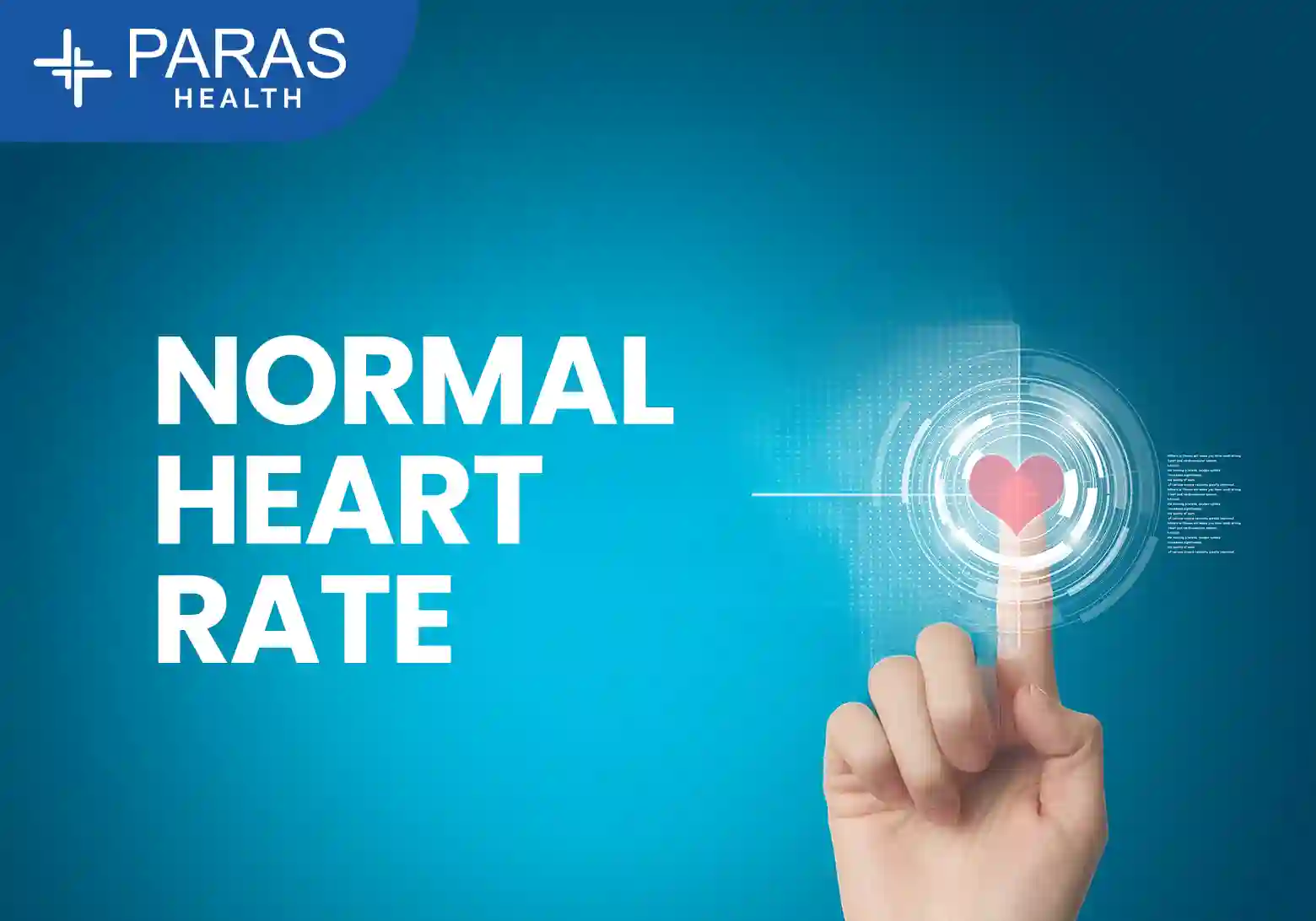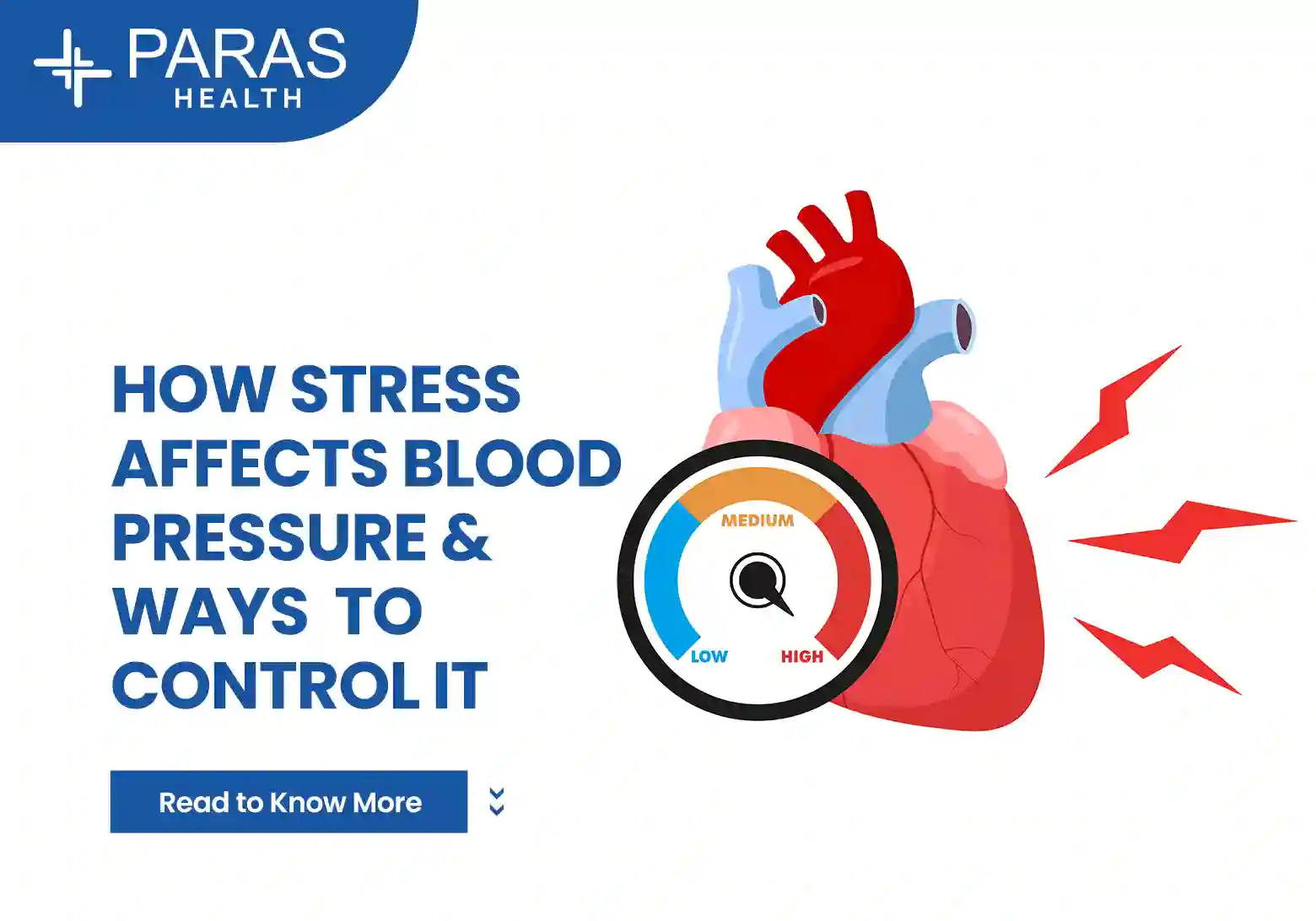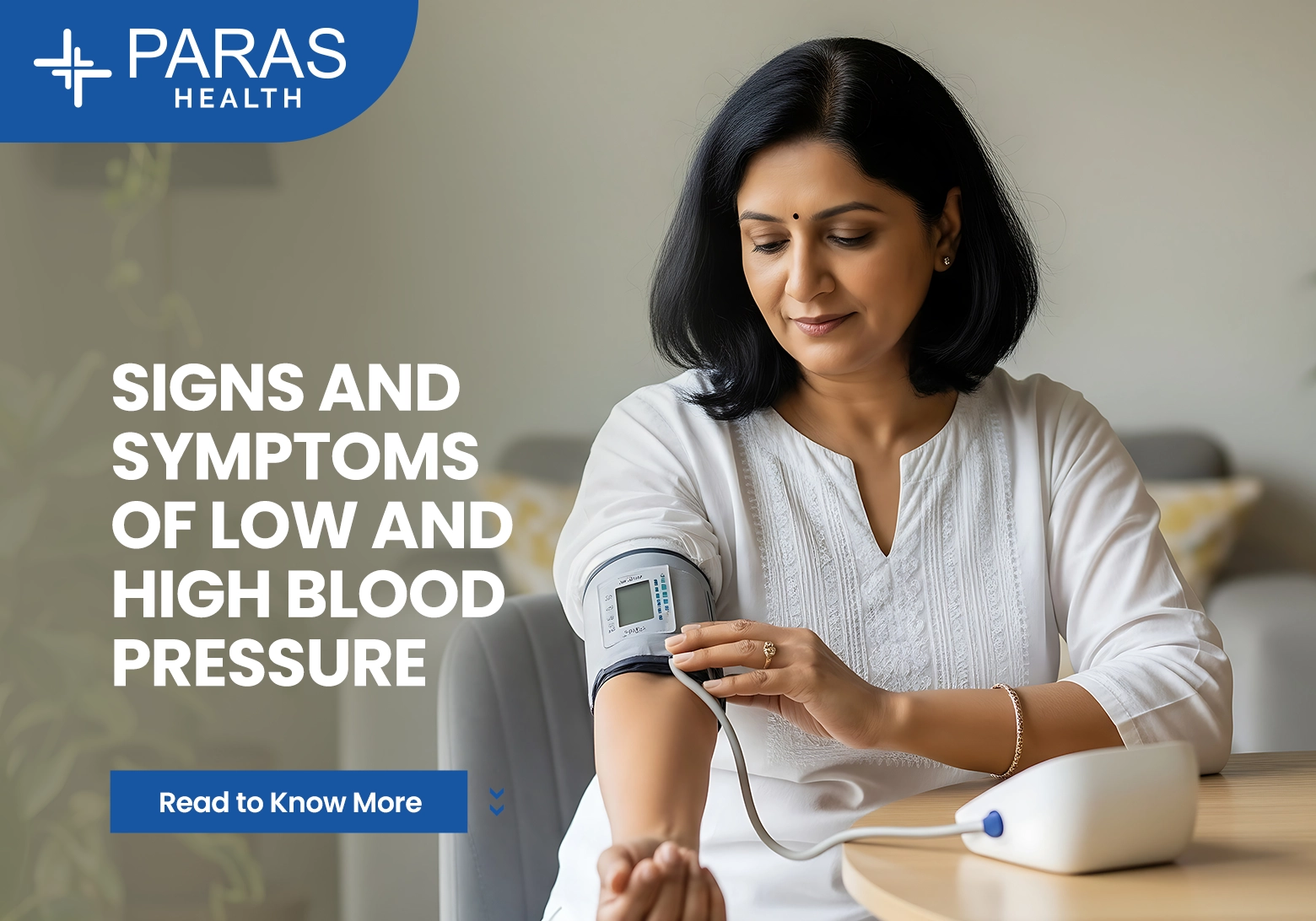Heart Rate Explained: Normal Range During Exercise, Sleep, and Stress
Nov 06, 2025
Your heart beats about 100,000 times a day — pumping life, energy, and oxygen throughout your body. But did you know that your heart rate changes all day long depending on what you’re doing — whether you’re working out, sleeping peacefully, or feeling stressed?
Understanding your normal heart rate during exercise, sleep, and stress is one of the easiest ways to monitor your heart health. Let’s explore what’s normal, what’s not, and how you can keep your heartbeat steady and strong.
What Is a Heart Rate and Why It Matters
Your heart rate (or pulse rate) is the number of times your heart beats per minute (BPM). It tells how efficiently your heart is working.
A healthy average heart rate changes depending on your age, gender, activity level, and even emotions. Keeping it within the normal range is important for maintaining cardiac health and avoiding heart-related issues.
Simply put — a normal heart rate reflects a strong and efficient heart.
What Is a Normal Heart Rate?
For most adults, a normal resting heart rate ranges between 60 and 100 beats per minute (BPM).
- Athletes or very fit individuals may have a resting rate as low as 40–60 BPM — this is completely normal.
- Children usually have a higher rate, between 70–120 BPM, depending on their age.
Factors that can influence heart rate:
- Age: Older adults often have a slightly higher resting rate.
- Fitness level: The fitter you are, the lower your resting heart rate.
- Stress and emotions: Anxiety or excitement can temporarily raise your pulse.
- Medication and caffeine: Both can impact how fast or slow your heart beats.
- Temperature: Hot weather or fever increases your BPM slightly.
Normal Heart Rate During Exercise
When you exercise, your muscles need more oxygen — and your heart works faster to deliver it. That’s why your heart rate during exercise goes up.
The Science Behind It:
During physical activity, the body demands more energy. Your cardiovascular system responds by pumping blood faster, increasing your BPM.
Normal Heart Rate During Exercise:
The healthy range depends on your age and workout intensity.
| Age | Target Heart Rate Zone (Moderate Activity) |
Maximum Heart Rate (approx.) |
|---|---|---|
|
20 years |
100–170 BPM |
200 BPM |
|
30 years |
95–162 BPM |
190 BPM |
|
40 years |
90–153 BPM |
180 BPM |
|
50 years |
85–145 BPM |
170 BPM |
|
60 years |
80–136 BPM |
160 BPM |
Formula: 220 – your age = maximum heart rate
Your target zone for fat burning and endurance training is about 50–85% of that number.
Example: For a 40-year-old, 50–85% of 180 = 90–153 BPM during exercise.
Heart Rate Recovery After Workout
After you stop exercising, your heart rate should gradually return to your resting heart rate within a few minutes.
A faster recovery indicates better fitness and heart efficiency.
Tip:
Use a smartwatch or fitness tracker to monitor your heart rate zones. Avoid pushing yourself to your max BPM too often, especially if you’re new to workouts or have a heart condition.
Normal Heart Rate During Sleep
Your heart rate naturally slows down during sleep — this is a sign that your body is relaxing and restoring itself.
- Average sleeping heart rate: 50–70 BPM for most adults.
- For athletes or fit individuals: It may drop to 40–50 BPM.
Why It Slows Down:
During deep sleep, your parasympathetic nervous system takes charge, helping your heart beat more slowly and efficiently.
Is a Low Heart Rate During Sleep Normal?
Yes, if you’re otherwise healthy and feel energetic during the day.
However, if you feel dizzy, fatigued, or faint, it could indicate bradycardia (abnormally slow heart rate) — in which case, it’s best to consult a doctor.
Monitoring sleep heart rate trends using a smartwatch or pulse oximeter can help detect early warning signs.
Heart Rate During Stress or Anxiety
Ever noticed your heart pounding before an interview or argument? That’s your body’s stress response kicking in.
What Happens:
When you’re stressed, your body releases adrenaline and cortisol, activating the sympathetic nervous system — also known as the “fight or flight” response.
This makes your heart rate and blood pressure rise, preparing your body for action.
Temporary vs. Chronic Stress
- Short-term stress: It’s normal for your heart rate to increase temporarily.
- Chronic stress: Continuous anxiety or tension keeps your heart rate high, which can strain your cardiovascular system.
How to Control It:
- Practice deep breathing and meditation
- Take short breaks during stressful tasks
- Exercise regularly
- Ensure enough sleep and hydration
If you often feel your heart racing even at rest, speak with your doctor — it could indicate anxiety or heart rhythm disorders.
When Is a Heart Rate Too High or Too Low?
Knowing what’s normal helps you spot what’s not.
Too High (Tachycardia)
A resting heart rate above 100 BPM could be due to:
- Stress, fever, or dehydration
- Caffeine or nicotine intake
- Anemia or thyroid disorders
Too Low (Bradycardia)
A resting heart rate below 50 BPM may be normal in athletes but could also signal:
- Heart block or electrical issues in the heart
- Medication side effects
If your heart rate is consistently too fast or too slow, consult a cardiologist for a detailed evaluation.
How to Maintain a Normal Heart Rate Naturally
You can help your heart beat at a steady, healthy rhythm through small lifestyle changes:
1. Exercise Regularly
Brisk walking, yoga, or swimming strengthen your heart and lower resting heart rate.
2. Eat a Heart-Healthy Diet
Include fruits, vegetables, whole grains, nuts, and omega-3-rich foods.
3. Stay Hydrated
Dehydration increases your heart rate as your heart works harder to pump blood.
4. Manage Stress
Try meditation, deep breathing, or hobbies that relax you.
5. Sleep Well
Quality sleep supports better heart rhythm and lowers stress hormones.
6. Limit Stimulants
Reduce caffeine, alcohol, and smoking.
7. Monitor Your Pulse
Use a smartwatch or manually check your pulse for regular tracking.
Normal Heart Rate Chart by Age and Activity Level
| Age | Resting Heart Rate (BPM) |
During Exercise (Moderate Intensity) |
|---|---|---|
|
Teens (13–19) |
60–100 |
100–170 |
|
20s–30s |
60–100 |
95–162 |
|
40s |
60–100 |
90–153 |
|
50s |
60–100 |
85–145 |
|
60+ |
60–100 |
80–136 |
How to Check Your Heart Rate Manually
- Place two fingers (index and middle) on your wrist (radial pulse) or neck (carotid pulse).
- Count the beats for 15 seconds and multiply by 4.
- That’s your BPM (beats per minute).
You can also use smartwatches or fitness bands for continuous monitoring.
Frequently Asked Questions
What should my heart rate be when I exercise?
It should be between 50–85% of your maximum heart rate (220 minus your age). For most adults, that’s around 90–150 BPM during moderate workouts.
What is a good heart rate while sleeping?
A normal heart rate during sleep is 50–70 BPM, though athletes may go as low as 40 BPM.
Is it normal for heart rate to increase during stress?
Yes, stress triggers the release of adrenaline, which temporarily increases your heart rate. Chronic stress, however, can be harmful.
Should I worry if my heart rate is high after a workout?
No, that’s natural — it should gradually come down within a few minutes of rest. If it stays high or you feel dizzy, seek medical advice.
What is the best heart rate for fat burning?
The fat-burning zone is around 60–70% of your maximum heart rate. That’s roughly 110–130 BPM for most adults.
How do I know if my heart rate is normal?
Measure it at rest — between 60 and 100 BPM is considered normal for healthy adults.
How to calm down my heart rate quickly?
Try slow deep breathing, hydration, and relaxation techniques to bring your BPM down naturally.
What happens if heart rate is too low during sleep?
If it drops below 40 BPM and you feel dizzy or faint, consult a doctor to rule out bradycardia or other heart rhythm issues.
Does anxiety permanently increase heart rate?
No, anxiety causes temporary spikes. Long-term high rates may indicate chronic stress and need medical assessment.
How to measure heart rate accurately at home?
Use your wrist or neck pulse, count beats for 15 seconds, and multiply by 4 — or simply use a fitness tracker for real-time readings.
Conclusion
Your heart rate is your body’s real-time health signal. It speeds up during exercise, slows down during sleep, and reacts instantly to stress — that’s normal.
What matters is knowing your own baseline and noticing when something feels off. A consistently high or low heart rate deserves attention — and early care can prevent future problems.
So, take a few seconds daily to check your pulse — it’s the simplest way to stay connected to your heart health.
If you notice irregularities, don’t ignore them. Book a heart health check-up at Paras Health today.










.png)